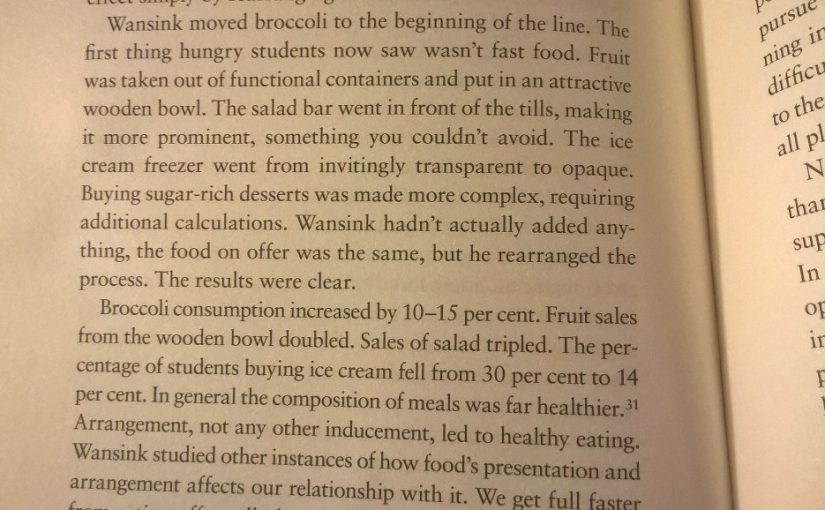Wansink moved broccoli to the beginning of the line. The first thing hungry students now saw wasn’t fast food. Fruit was taken out of functional containers and put in an attractive wooden bowl. The salad bar went in front of the tills, making it more prominent, something you couldn’t avoid. The ice cream freezer went from invitingly transparent to opaque. Buying sugar-rich desserts was made more complex, requiring additional calculations. Wansink hadn’t actually added anything, the food on offer was the same, but he rearranged the process. The results were clear.
Broccoli consumption increased by 10-15 per cent. Fruit sales from the wooden bowl doubled. Sales of salad tripled. The percentage of students buying ice cream fell from 30 per cent to 14 per cent. In general the composition of meals was far healthier. Arrangement, not any other inducement, led to healthy eating. Wansink studied other instances of how food’s presentation and arrangement affects our relationship with it.
Excerpt from: Curation: The power of selection in a world of excess by Michael Bhaskar





